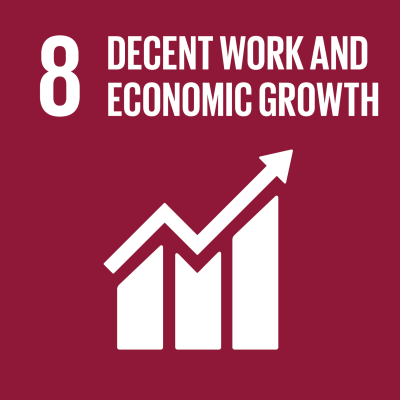 Caribbean Education for Employment Program (C-EFE)
Caribbean Education for Employment Program (C-EFE)
Challenges
Before 2011, the countries of the Caribbean used to be labour driven, with most of their skilled professions occupied by foreigners. This resulted in a constant struggle for the training programs to be robust or structured in a way for the locals to give them the ability to apply for the skilled professions.
Local companies wanted to focus on the core business without having to worry about training employees to get them job ready. However, this was not the case. The youths hardly received technical and vocational education and training (TVET) which caused the local companies to take training initiatives.
Girls and women were discouraged from studying in traditionally male profession sectors.
The main challenges faced by the Caribbean education system:
- Educational & training institutions were traditional and supply-driven systems which are back dated
- Poor regional TVET coordination system
- Gender inequality in professional sectors.
Towards a Solution
To meet the challenges, The CARICOM/Caribbean Education for Employment Program (C-EFE) was undertaken with the financial support of the Government of Canada provided through the Department of Foreign Affairs, Trade and Development (DFATD). The Program was co-designed by key Caribbean individuals involved in the TVET sector, Association of Community Colleges Canada (ACCC) and DFATD. The program aimed to:
- Support economic development in the Caribbean region through strengthening of its TVET system.
- Support education and training institutions and national training agencies (NTAs) to become more responsive, applied, demand-driven; with a goal to provide learners with the skills required by the labour market.
The ultimate outcome of C-EFE was “increased economic growth due to a more competitive, productive and gender equitable workforce in the Caribbean.” The program reached its aim by strengthening the management of public financial resources, including debt management. Strengthened the productivity of small and medium-sized enterprises and increasing participation in regional and global markets. Created an enabling and predictable environment for economic growth through increased capacity and accountability of public institutions and by fostering a more competitive private sector. Promoted public-private partnerships that generate employment and attract investment for growth. As a result, the access for employment for the youths increased as well.
The Caribbean Vocational Qualification (CVQ) is now widely known in the region, cited by employers, educators, government officials whereas it was virtually unknown eight years ago (8 National Training Agencies currently awarding CVQs.)
Hundreds of graduates of the pre-technology and regular programs are employed or engaged in further education and training, having moved out of the “Not in Education, Employment, or Training” (NEET) category (2,906 students trained in 11 sectors; 1,603 graduates from 18 new demand-driven programs across 11 sectors,) leading to less reliance on technical assistance from abroad.
Regional approaches to Competency Based Education Training (CBET), CVQ development, delivery, and certification, occupational standards structure and content, and training of assessors and verifiers are in place to develop standards that are shared in the region, allowing for mobility among the 12 countries.
The purpose of this initiative is to support the economic development of the region through the strengthening of its TVET system. This can be achieved by building the capacity of local TVET institutions that will enable them to attract, train, and graduate citizens with relevant gender and environmentally sensitive TVET skills that respond to labour market needs. Local institutions will be able to create new or enhance existing programs focused on providing graduates with employability and entrepreneurship skills. As well, gender equality, governance and environmental sustainability issues will be integrated into programs and into TVET leadership and instructor training programs.
As a result, a more prosperous and integrated community will be formed that is able to generate sustainable economic growth.
Contact Information
Countries involved
Supported by
Implementing Entities
Project Status
Project Period
URL of the practice
Primary SDG
Similar Solutions
| NAME OF SOLUTION | Countries | SDG | Project Status | |
|---|---|---|---|---|
Accelerator Labs Network Following collective intelligence methods to address emerging sustainability challenges and the growing demand for local solutions |
Antigua and Barbuda, Bahamas, Barbados, Dominica, Grenada, Guyana, Jamaica, Saint Kitts and Nevis, Saint Lucia, Saint Vincent and the Grenadines, Suriname, Trinidad and Tobago | 08 - Decent Work and Economic Growth 13 - Climate Action | Ongoing | View Details |
Accessibility of Financial Services and the Private Sector in Africa Maximizing the impact of financial cooperation on economic development and industrialization in Africa |
Antigua and Barbuda, Bahamas, Barbados, Dominica, Grenada, Guyana, Jamaica, Saint Kitts and Nevis, Saint Lucia, Saint Vincent and the Grenadines, Suriname, Trinidad and Tobago | 08 - Decent Work and Economic Growth | Completed | View Details |
Accessibility ToolKit Promoting accessibility as a cornerstone for inclusive digital development in Bangladesh. |
Antigua and Barbuda, Bahamas, Barbados, Dominica, Grenada, Guyana, Jamaica, Saint Kitts and Nevis, Saint Lucia, Saint Vincent and the Grenadines, Suriname, Trinidad and Tobago | 08 - Decent Work and Economic Growth | Completed | View Details |
ACP Business-friendly Supporting business-friendly and inclusive national and regional policies, and strengthening productive capabilities and value chains |
Antigua and Barbuda, Bahamas, Barbados, Dominica, Grenada, Guyana, Jamaica, Saint Kitts and Nevis, Saint Lucia, Saint Vincent and the Grenadines, Suriname, Trinidad and Tobago | 08 - Decent Work and Economic Growth 17 - Partnerships for the Goals | Ongoing | View Details |
Adaptation for Smallholder Agriculture Programme Establishing better working conditions for smallholder farmers through the use of good practices and new technologies |
Antigua and Barbuda, Bahamas, Barbados, Dominica, Grenada, Guyana, Jamaica, Saint Kitts and Nevis, Saint Lucia, Saint Vincent and the Grenadines, Suriname, Trinidad and Tobago | 08 - Decent Work and Economic Growth 11 - Sustainable Cities and Communities 13 - Climate Action 15 - Life on Land | Ongoing | View Details |